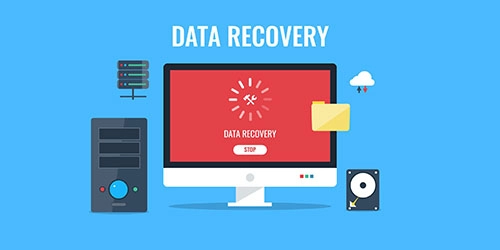Data Disaster Recovery

With the increased frequency and severity of CryptoLockers, and various malicious software that is out there these days, it is more important than ever to re-evaluate data backups for your company. Many Accountants are assured that backups are being made by their IT company, but oftentimes, the system is not being backed up as frequently as they think. In the event of a data disaster like a CryptoLocker, where attackers lock your whole system down, having good backup practices in place ensures a quick recovery time so you can get back to business.
Backups of Sage 100
Ensuring that your software is backed up on a regular basis is critical in an emergency. Back up Sage 100 often, and ensure you are getting everything—program files, company files, and paperless office files – which is critical in a restoring after a cryptoattack.
In a situation like a CryptoLock, hackers are getting into your system and encrypting your company files. These files still exist in your system, but are being held hostage until the ransom is paid for unencryption. In this situation, if you have the proper backups in place, your IT company can wipe the entire drive, and do a reinstall of your data & company code folders and get you back up and running.
For more information about how to make backups in Sage, check out our Feature Friday Webinar for a step-by-step tutorial.
Data Disaster Recovery Best Practices
Having good data backup practices can help ensure that if a data disaster (or natural disaster) should occur, you can get access to your data quickly and get your system restored.
Here are some of the best practices for data backups:
- Making Backups – Ensure backups are being performed on data as well as on servers if needed. We recommend that they are not stored on the same network as production servers, as these backups could potentially be infected during a crypto-attack.
- Disconnect External Drives – Whenever you make a backup to an external drive or an external location, make sure that you are disconnecting those drives, and not leaving them connected, as hackers can also encrypt external drives connected to the server. If your system does get attacked, and your data is encrypted, take caution hooking up these backups to the server, as these hackers can also corrupt the backups once connected.
- Incorporate offsite backups – It is always a great idea to have an offsite backup in case there is a fire or natural disaster that prohibits you from getting to your backup. There are many services that charge per MB for real-time backups, and they are uploaded to the web for you to download in case of disaster. When looking into these companies, pay close attention to how quickly they can get your data to you in case of emergency.
- Have your data hosted – if you are hosting with MicroAccounting, or one of our designated hosting providers, backups are made by the hosting provider off-site. In the event of a cyber-attack, the hosting provider can spin up a new server and roll your data over to get you back up and running. For more information on our hosting providers, reach out to your account manager.
- Computer Updates & Antivirus – Make sure Windows updates have been applied to workstations & servers, and that anti-virus software is loaded and up-to-date. Schedule regular anti-virus scans of computers.
As we see more and more clients facing viruses, hardware failures or Ransomware, we all too often experience situations where clients were not properly backing up their data or thought they were but had never tested it until it was too late. If you think the cost of making sure you are covered is too high, calculate the cost of having your business shut down for days or weeks as you try to recover what was lost. It is not enough to presume your data is backed up, it is important to test the recovery process periodically to ensure you are able to get the data restored quickly and everything back up and running smoothly. Although we are not responsible for your data, we can help provide recommendations as to how you can make sure you are protected. Please contact us if you would like our assistance.




